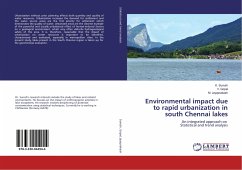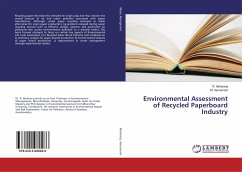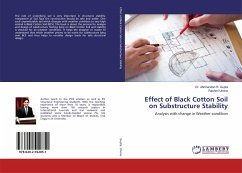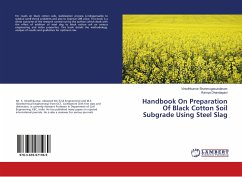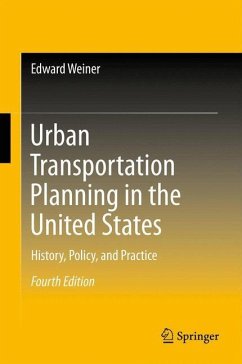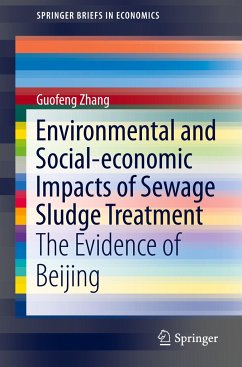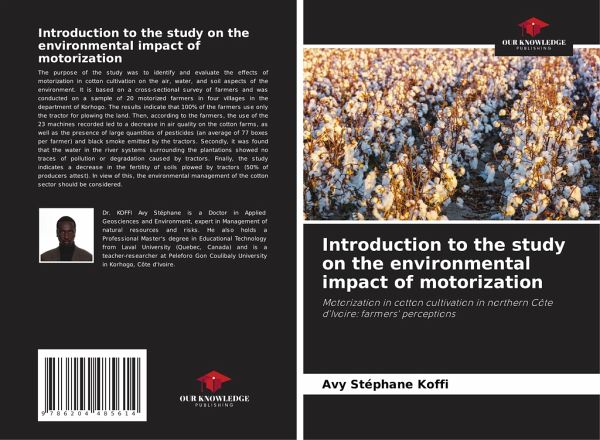
Introduction to the study on the environmental impact of motorization
Motorization in cotton cultivation in northern Côte d'Ivoire: farmers' perceptions
Versandkostenfrei!
Versandfertig in 6-10 Tagen
27,99 €
inkl. MwSt.

PAYBACK Punkte
14 °P sammeln!
The purpose of the study was to identify and evaluate the effects of motorization in cotton cultivation on the air, water, and soil aspects of the environment. It is based on a cross-sectional survey of farmers and was conducted on a sample of 20 motorized farmers in four villages in the department of Korhogo. The results indicate that 100% of the farmers use only the tractor for plowing the land. Then, according to the farmers, the use of the 23 machines recorded led to a decrease in air quality on the cotton farms, as well as the presence of large quantities of pesticides (an average of 77 b...
The purpose of the study was to identify and evaluate the effects of motorization in cotton cultivation on the air, water, and soil aspects of the environment. It is based on a cross-sectional survey of farmers and was conducted on a sample of 20 motorized farmers in four villages in the department of Korhogo. The results indicate that 100% of the farmers use only the tractor for plowing the land. Then, according to the farmers, the use of the 23 machines recorded led to a decrease in air quality on the cotton farms, as well as the presence of large quantities of pesticides (an average of 77 boxes per farmer) and black smoke emitted by the tractors. Secondly, it was found that the water in the river systems surrounding the plantations showed no traces of pollution or degradation caused by tractors. Finally, the study indicates a decrease in the fertility of soils plowed by tractors (50% of producers attest). In view of this, the environmental management of the cotton sector should be considered.




